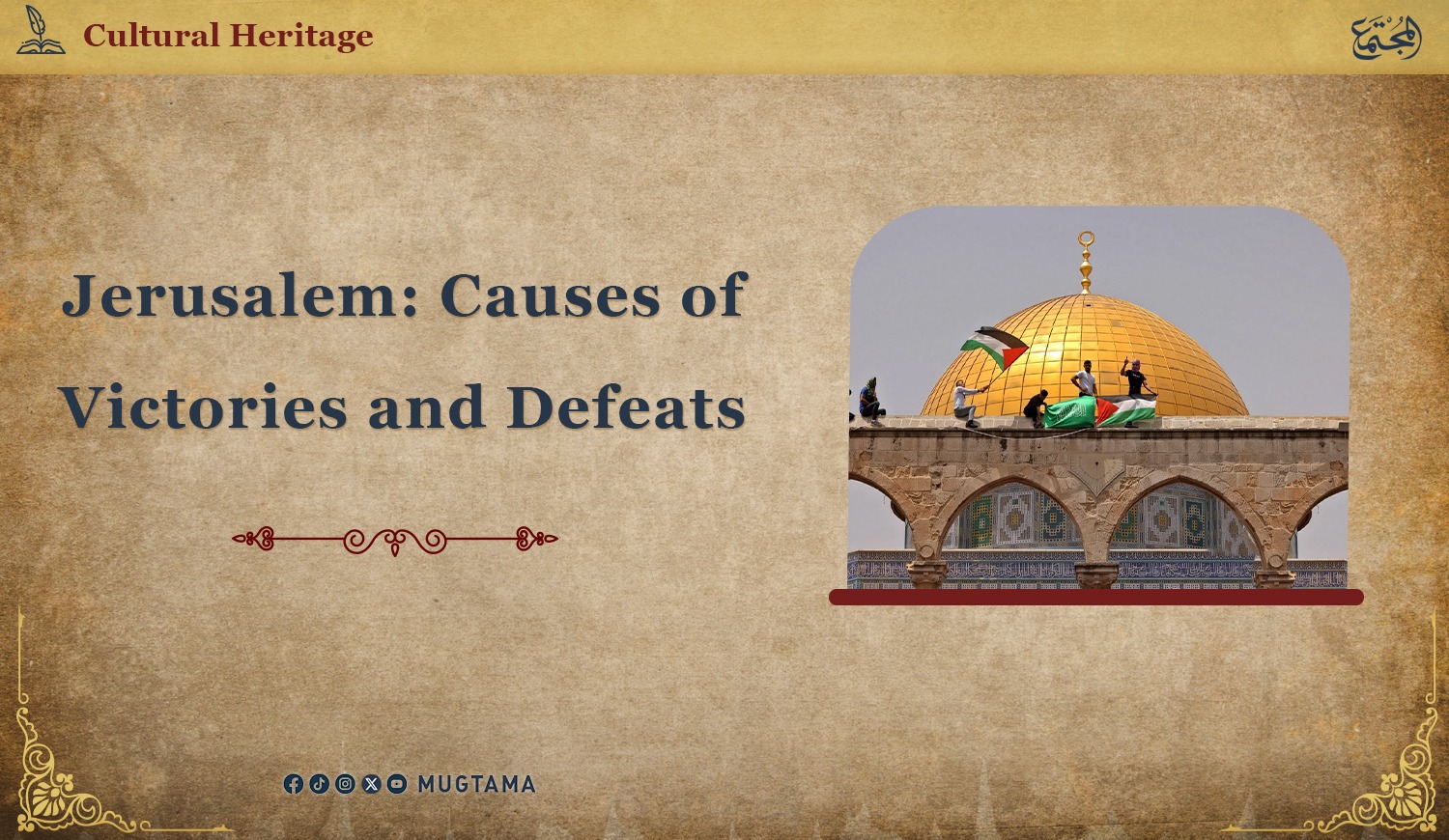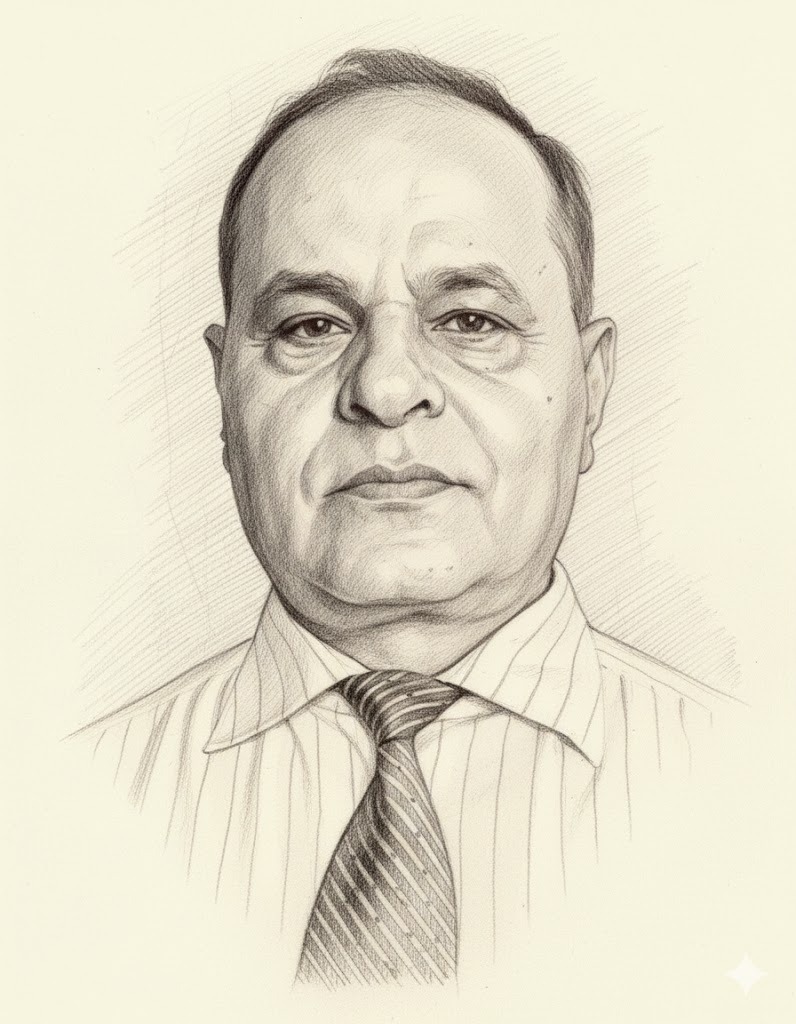Jerusalem: Causes of Victories and Defeats

For a long time, Jerusalem remained under Islamic rule during the Ayyubid and later the Mamluk dynasties. The Mamluks, led by Qutuz, took a stand in defending the Levant and Egypt against the Mongol invasion, an event that history remembers with great pride. This victorious Mamluk leader was able to instill the spirit of fighting and jihad in the cause of God among Muslim soldiers. He marched with them from Egypt to the Levant to meet the Mongols at Ain Jalut, accompanied by his friend Sheikh Ibn Abd al-Salam, who guided and supported him. God granted them a resounding victory that restored dignity to Islam and honor to the Muslims.
Egypt and the Levant remained
under Mamluk rule until they
were conquered by the Ottoman Sultan Selim, who took over the Caliphate from
the Abbasids. All Muslim lands became part of the Ottoman Caliphate, ruled by
the House of Osman of the Turks. Jerusalem remained in Ottoman hands, and
toward the end of their era, there were maneuvers and attempts by Jews to
settle in Palestine. Despite the injustices and shortcomings of the Ottoman
era, from which the Turks themselves did not escape, the Ottoman sultans are
remembered for their keenness to keep Jews out of Palestine despite their
desperate attempts to settle there.
During the Turkish rule, the final say
in Jerusalem
belonged to its original Muslim inhabitants. They forbade foreigners from
owning land in Jerusalem. Historians tell us that the Jews repeatedly tried to
persuade the sheikhs and leaders of the country to change their policy and
allow even a limited number of Jews to enter Palestine and buy and own land,
but they did not succeed. They then turned to Istanbul to convince the Sultan
and his ministers to grant Jews facilities for settling in Palestine.
The Collapse Under the Fragile States of the Late Abbasid Era
For this purpose, Herzl frequented
Istanbul, trying to persuade Sultan Abdul Hamid of his idea between 1897 and
1902. But Abdul Hamid refused to listen to his pleas and rejected the
temptation of money he offered. Herzl himself recorded in his diaries the
following words from the Sultan:
"The Sultan sent me a
high-ranking medal with a reply containing these phrases: 'Tell Dr. Herzl not
to make any further attempts in this matter. I am not prepared to cede a single
inch of this land to anyone else. The land is not my property; it belongs to my
people, and my people have watered its soil with their blood. Let the Jews keep
their millions of gold.'"
But the situation changed after the
revolution that toppled Abdul Hamid and his throne and brought in the
"Committee of Union and Progress," which included the crypto-Jews of
the Dönmeh who feigned Islam. During their rule, the Ottoman government enacted
a law allowing Jews and others to buy land in Palestine. The Sultan's farms
were sold at public auctions, and the Jews bought what they could through this
channel before World War I, which began in 1914.
Jerusalem Under British Occupation
In 1917, while World War I was at its
height, the British entered and advanced into Palestine, heading toward
Jerusalem. The Ottoman army, which included Arab soldiers, tried to repel the
foreign invasion with all their might, but the reasons for their defeat were
clear. Their preparation was not complete, the nation was not united, justice
was not prevailing, and most importantly, the people's connection to their Lord
was severed. This has always been the cause of defeat for Muslims. Here is an
example of the actions of the defeated Muslims when they felt helpless. One of
them, a Turk named Izzat Bey, claimed that Jerusalem would inevitably fall into
the hands of the British and that there was no use in resisting further. He
summoned the Mufti of Jerusalem and the Mayor, and when they met, he said to
them: "The English soldiers have surrounded Jerusalem, and it will soon
fall into their hands. I have decided to leave the city in half an hour, and I
want to entrust you with this great moral burden: the surrender of the city to
the conquerors." He then handed the Mayor the following surrender document
to give to the British:
To the English Command: "For two
days, bombs have been falling on the holy city of Jerusalem, which is sacred to
all faiths. The Ottoman government, wishing to preserve the holy sites from
destruction, has withdrawn its military force from the city and has appointed
officials to protect the religious sites, such as the Church of the
Holy Sepulchre and the Al-Aqsa Mosque. In the hope that you will treat them
in the same manner, I am sending this paper with the acting mayor of Jerusalem,
Hussein Bey al-Husseini." Independent Governor of Jerusalem Izzat
8/12/1333 AH
Thus, Jerusalem fell into British
hands, and the last Ottoman soldier departed. All of Palestine remained under
British rule, expecting its sons to be entrusted with its governance. They
continued to receive promises upon promises while the British equivocated, and
the country was run by British hands as the British wished. Not only that, but
the minds that were running the government were purely Jewish. The Jewish
Herbert Samuel was the High Commissioner in Palestine, and the Attorney General
was also a Jewish legal advisor, with the "Jewish Agency" behind
them.
Liberated by a United Nation, Clinging to God's Rope, in the Era of Saladin
Under this unjust rule, the Arabs soon
heard about the Balfour Declaration, by which the British gave the Jews the
right to establish a national homeland for themselves in Palestine. From that
day on, revolts flared up in Palestine, and dozens of martyrs fell, while
innocent people were sentenced to imprisonment, killing, and execution. During
the Arab-“Israeli” war in 1947 in Palestine, this war ended with the
declaration of the Jewish state after the Jews were able to seize the larger
part of Palestine, along with a part of the new Jerusalem. Before that, the
Arabs had rejected a plan for the partition of Palestine that would have given
the Jews less than what they took. The sons of this nation remained steadfast,
waiting for the day when they could liberate the holy land and restore justice
to its people. The war of 1956 came, and something new was lost, and the war of
1967 came, and everything in Palestine and other parts of the Arab homeland was
lost. The Jews announced the permanent annexation of Jerusalem and considered
it the capital of their alleged state.
What does Jerusalem await?
And today, after the 1973 battles, what does Jerusalem await? Does it wait to return, along with the surrounding land of Palestine, to its rightful owners? Or does it wait to be internationalized and become a global city for all the nations of the world, with its owners looking on with sorrow and grief? Or will it remain the capital of the enemies as they wish?
We wait. But we know full well that
laying down our weapons cannot bring it back to us, even if we cling to all the
goals of so-called international justice and human rights declared on paper.
We also know that Jerusalem is an
Islamic land, and Muslims all over the world have a right to participate in the
honor of fighting for it. Its liberation can only be achieved through fighting
and sacrifice in the cause of God, with a united nation, with the banner of
Islam raised, and with the holy jihad declared throughout its lands. Only then
will our nation be a true nation of Muhammad (peace be upon him), and our men
will be the men of Ibn al-Khattab, Saladin, and other Muslim men.
---------------------------------------
- Published in issue (359), 4 Sha'ban 1397 AH / 19 July 1977 CE, p. 40.











